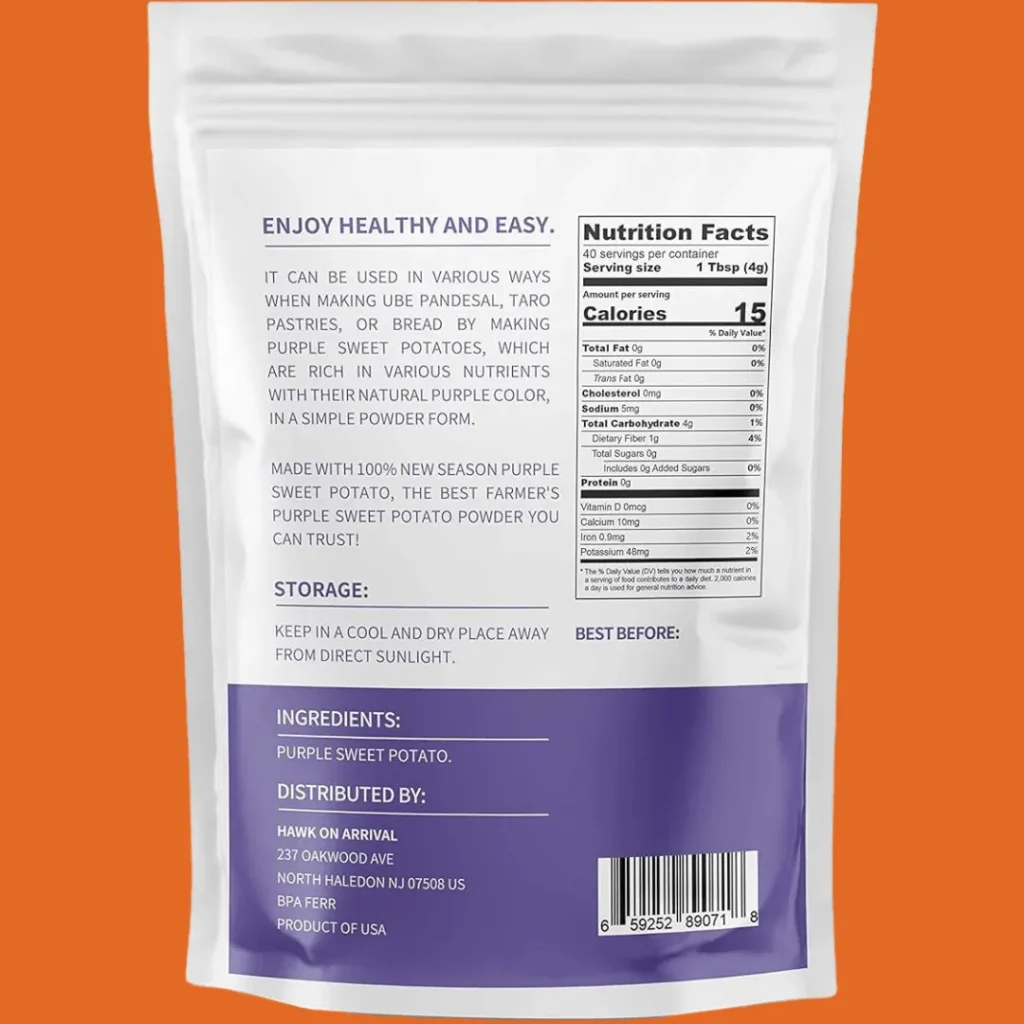Home of Featured Food to Excellence
This blog will guide you to the perfect result in achieving the proper health and nutrition objectives
Eating for Longevity: Featured Food to Health that Promotes a Healthy and Happy Life
Imagine a future where your diet could be the key to a longer, happier life.
The quest for longevity has fascinated humans since ancient times, with diet playing a crucial role in this pursuit.
Dive into “Eating for Longevity: Foods That Promote a Healthy and Happy Life” to explore the vital foods that can contribute to your well-being and potentially add years to your life.
Research highlights the importance of choosing foods that offer a high nutritional return for calories consumed.
High-quality foods typically include fewer calories than processed items, making them more effective for maintaining a healthy weight—an essential factor in long-term health and longevity.
Nutrient-rich foods, particularly those like organ meats, small fish, dark leafy greens, and certain lean meats, are vital. They provide a plethora of essential nutrients imperative for our body’s daily functions and disease prevention.
Remember, a balanced diet with a rich variety of foods delivers a symphony of nutrients that work together to bolster your immune system, reduce the risk of chronic diseases such as cardiovascular disease, and promote optimal health for a life of wellness and vitality.
This condensed passage focuses strictly on the importance of a healthy diet for longevity, based on the provided facts and formatting guidelines.
The Role of Omega-3 Fatty Acids in Longevity
Omega-3 fatty acids are renowned not just for their heart-healthy benefits but also for their far-reaching impact on overall longevity. Found abundantly in oily fish such as salmon, trout, and mackerel, these essential fats contribute significantly to the health of the nervous system and cardiovascular health. Beyond that, research has suggested they can be instrumental in mitigating inflammatory conditions, including arthritis. Even more impressively, adequate omega-3 intake may diminish the risk of neurodegenerative diseases such as Alzheimer’s disease and dementia.
Moreover, these fatty acids are not only crucial for maintaining optimal health in adults but also play a pivotal role in infant development. Their presence in the diet is directly associated with reducing the risk of chronic diseases, such as heart disease and some forms of cancer. Clearly, omega-3 fatty acids serve as a cornerstone nutrient for anyone aiming to preserve health and vitality through the years.


Omega-3 fatty acids, particularly eicosapentaenoic acid (EPA) and docosahexaenoic acid (DHA), found in fish, are vitally important for supporting cardiovascular health.
The American Heart Association emphasizes their importance and recommends fatty fish such as salmon, sardines, mackerel, and herring for their rich omega-3 content. Unfortunately, studies have noted that the intake of these critical nutrients in the U.S. remains below recommended levels. This gap in the diet could leave many individuals, particularly women and children, vulnerable to negative health outcomes.
Given that EPA and DHA from fish are utilized more efficiently by the body than alpha-linolenic acid (ALA) from plant sources, they are integral to a diet aimed at preventing inflammatory conditions like arthritis and maintaining a robust and healthy body.
The body utilizes omega-3 fatty acids from seafood, particularly EPA and DHA, more efficiently than ALA from plants.
This efficiency speaks to the remarkable role omega-3s play in health and disease prevention. The evidence from research is compelling, suggesting that these fats can help reduce the risk of heart disease, certain cancers, and Alzheimer’s, as well as assist in the crucial stages of infant development.
The current intake of omega-3 fatty acids in the U.S., specifically among women and children, is alarmingly lower than advised, which could be paving the way for adverse health issues. Consuming fattier types of fish, which boast a high omega-3 content, as recommended by health experts, can be a simple solution to this nutritional deficiency.
Incorporating Omega-3 Fatty Acids into Your Diet
Incorporating adequate levels of omega-3 fatty acids into one’s diet is key for heart health and overall well-being. The American Heart Association advises at least two servings of fatty fish a week, each weighing about 3 ounces cooked, to garner these health benefits. These include fish species like salmon, sardines, mackerel, and herring known for their omega-3 richness.
When it comes to including these fish in the diet, preparation methods matter. Opting to broil, bake, or grill fish—rather than breading and frying—helps to maintain the nutritional integrity of the fish and avoids the addition of extra calories and carbohydrates, thereby enhancing the health benefits. By making smart choices about how we include fish in our diets, we can enjoy the robust flavor and reap the nutritional rewards that contribute to a longer, healthier life.
The Power of Leafy Green Vegetables
Leafy green vegetables are often hailed as nutritional powerhouses, and for good reason. These versatile plants offer a treasure trove of vitamins, minerals, and fiber, while also being low in calories.
Diving into this category of vegetables, one finds an array of options, each with its own distinct taste and texture. Dark Green Leafy Vegetables (DGLVs), such as kale, Swiss chard, collard greens, turnip greens, and spinach, stand out for their exceptional nutrient profile.
They are an excellent source of folate, zinc, calcium, iron, magnesium, and vitamin C. Moreover, the fiber content in DGLVs supports digestion and can contribute to weight loss by promoting a feeling of fullness.
The potential health benefits of DGLVs are far-reaching. Regular consumption can help reduce the risk of chronic diseases like heart disease and type 2 diabetes. These veggies also boast high levels of carotenoids—anti-inflammatory compounds linked to reduced cancer risk.
For those seeking to enhance their diet with nutrient-rich foods that promote optimal health, leafy greens offer an array of compelling reasons to be included in everyday meals.
Nutritional Value of Leafy Green Vegetables
When we scrutinize the nutritional content of leafy green vegetables, it’s evident why they’re celebrated in healthy diets. The nutrient density in DGLVs is remarkable.
Folate, a B-vitamin that’s crucial for forming red blood cells and for proper nerve function, is found abundantly in these vegetables. They’re also an excellent source of zinc, which is essential for a healthy immune system and wound healing, and calcium, which is pivotal for bone health.
Iron, contained within leafy greens, is a component of hemoglobin that’s essential for transporting oxygen in the blood. Magnesium plays a role in over 300 enzymatic reactions in the body, including energy production and protein synthesis.
Vitamin C, a powerful antioxidant, contributes to immune defense and the maintenance of skin and connective tissue. The dietary fiber found in DGLVs not only helps with maintaining a healthy digestive tract but also can assist in regulating blood sugar levels.
Together, these nutrients solidify the position of leafy greens as a cornerstone in a balanced diet for health and wellness.
Health Benefits of Consuming Leafy Green Vegetables
Leafy greens offer a vast range of health benefits.
They have been shown to potentially reduce the risk of cardiovascular disease, thanks to their rich variety of vitamins and minerals that support heart health.
The antioxidants present in spinach and similar vegetables can help curb oxidative stress and may have a protective effect against aging and the development of certain cancers.
Moreover, the anti-inflammatory properties of carotenoids present in DGLVs can contribute to reducing the risk of chronic conditions. These vegetables can play a critical role in diabetes management by helping to regulate blood sugar levels due to their fiber content.
The varied nutrient composition of leafy greens— encompassing vitamins A, B-6, C, E, and K, as well as essential minerals such as selenium, zinc, phosphorus, and calcium—ensures that they are not only contributing to immediate nutritional needs but also supporting long-term health and wellness.
Incorporating leafy greens into your daily diet doesn’t require a complete culinary overhaul—instead, it’s about making small, creative changes to your existing meal repertoire.
For a start, adding a handful of spinach or kale into a breakfast smoothie can kick-start the day with a nutrient boost. At lunch, tossing a variety of greens into a mixed salad brings both color and vitamins to your plate.
Sweet potatoes, with their earthy sweetness and vibrant color, have surged in popularity as a healthful staple in modern diets.
Not only do they satisfy the palate with their rich flavor, but their versatility in meal preparation is unparalleled. Often celebrated for their high concentrations of vitamins, particularly vitamin A in the form of beta carotene, sweet potatoes also contain a plethora of essential nutrients including potassium and dietary fiber.
Their unique characteristic is that, despite their naturally sweet taste, they actually have a lower glycemic impact than one might expect. This unique attribute makes them an excellent food choice for balancing blood sugar levels, contrary to what their sweetness might suggest. With accolades from the Center for Science in the Public Interest, highlighting sweet potatoes as a top contender for nutrient profile, they offer a wholesome alternative to other starchy vegetables.
From being baked to a caramelized perfection, mashed with a hint of cinnamon, or sliced into wedges for a savory dish, sweet potatoes can be seamlessly incorporated into any meal. This adaptability not only enhances the culinary experience but also enriches the diet with a boost of vital health-promoting compounds.
When dissecting the nutritional makeup of sweet potatoes, it’s not surprising they’ve been dubbed a superfood.
They are astonishingly rich in antioxidants, particularly carotenoids, which are praised for their potential to lower the risk of various cancers. Their impressive profile is anchored by their high vitamin A content, which is vital for maintaining healthy vision, skin, and immune function.
In addition to the antioxidant beta carotene, sweet potatoes are bountiful in vitamins C and B-6, and they provide an ample supply of potassium, known for its role in maintaining electrolyte balance and proper muscle and nerve function. Moreover, the complex carbohydrates and dietary fiber present contribute to sustained energy levels and optimal digestive health. The Center for Science in the Public Interest’s ranking of sweet potatoes at the forefront for nutrient content emphasizes their significant contribution to a nutritious diet.
Incorporating sweet potatoes into one’s diet can have impressive health ramifications.
Their rich nutrient content, consisting of potassium, fiber, and vitamins, establishes them as a highly nutritious choice. The presence of carotenoids, the potent antioxidants in sweet potatoes, suggest a capacity to fend off certain cancers, making them a proactive choice in a health-conscious lifestyle.
Perhaps one of the most astonishing characteristics is the sweet potato’s ability to manage blood sugar levels, debunking the myth that sweetness equates to a high glycemic index. This trait can be particularly advantageous for those managing type 2 diabetes. In essence, sweet potatoes not only satiate hunger with their comforting taste but also act as a multi-functional food that nurtures the body, supporting overall well-being.
The culinary versatility of sweet potatoes knows no bounds. Whether you bake them whole to bring out their natural sugars or mash them up with a touch of spice for a creamy side, these root vegetables are an ideal canvas for a medley of flavors. Consider these creative and nutritious options to introduce sweet potatoes into your daily meals:
- Breakfast Hash: Dice and sauté sweet potatoes with onion and peppers for a colorful, nutrient-dense start to your day.
- Sweet Potato Toast: Swap out bread with thin slices of sweet potato, toasted until slightly crispy and topped with avocado or almond butter.
- Stuffed Sweet Potatoes: Fill baked sweet potatoes with a mixture of black beans, corn, and a sprinkle of cheese for a comforting and balanced meal.
- Sweet Potato Pancakes: Grate sweet potatoes into your batter for a naturally sweet and hearty version of a breakfast favorite.
- Spiralized Noodles: Use a spiralizer to turn sweet potatoes into noodles and toss them with your favorite pasta sauce.
With these highly adaptable preparations, sweet potatoes not only cater to taste but also enhance the nutritional value of meals, making them a beneficial and delectable food choice for maintaining a healthy diet and lifestyle.
The vital role of dietary fiber in promoting longevity cannot be overstated.
As it passes through our digestive system, this essential nutrient does wonders by slowing digestion, which prevents spikes in blood glucose levels and minimizes insulin release. The benefit? A more controlled energy release and reduced fat storage. Moreover, as fiber travels through the gut, it helps release hormones that induce feelings of fullness, effectively curbing appetite and assisting in weight management.
Dietary fiber isn’t just about keeping us full; it holds the key to staving off several chronic diseases. With its capacity to keep our digestive system running smoothly and assisting in cholesterol management, fiber plays an indispensable role in long-term health. It’s not just about the roughage; certain types of soluble fiber act as prebiotics, nourishing the good bacteria in our intestines. This nurturing effect on gut health extends to overall well-being, with a healthy gut microbiome being linked to enhanced longevity. Regularly consuming foods rich in fiber can therefore help us avoid overeating, reduce our caloric intake, and foster a robust, diverse gut environment for better health across the lifespan.
Dietary fiber encompasses both soluble and insoluble types, each with its unique health benefits.
Soluble fiber dissolves in water, forming a gel-like substance that slows down digestion and the absorption of sugar, contributing to blood glucose stability. This can be particularly beneficial for individuals managing conditions such as diabetes. On the other hand, insoluble fiber doesn’t dissolve, adding bulk to the stool and facilitating regular bowel movements, which is essential for intestinal health.
Not all foods are created equal when it comes to their nutrient and fiber content. Ultra-processed foods, often stripped of their natural fiber, are rapidly broken down by the body, leading to quick surges in blood sugar and leaving you feeling hungry sooner. Choosing whole, unprocessed foods ensures that the body gets the maximum benefit from the fiber, as well as a host of other nutrients that are essential for good health.
A fiber-rich diet shines in its broad spectrum of health benefits.
Regularly consuming high-fiber foods like legumes, whole grains, fruits, and vegetables can significantly reduce the risk of heart disease, stroke, and certain types of cancer. Additionally, fiber helps regulate blood sugar levels and can aid in the management of diabetes.
Soy, a legume rich in fiber, also offers unique isoflavones like genistein and diadzen, which contribute to cardiovascular health and bone density. Similarly, the inclusion of diverse beans and legumes in your diet not only provides an excellent source of plant-based protein but also assists in cholesterol management, potentially reducing the need for medications.
Furthermore, prebiotic fibers found in certain fruits and vegetables like bananas, artichokes, and onions promote a flourishing gut microbiome. Coupled with probiotics, these fibers support digestive health and can have systemic health benefits, potentially influencing mood, immune function, and even obesity.
Adding Fiber-Rich Foods to Your Daily Diet
Infusing your diet with fiber-rich foods is a strategic approach to enhancing your health. Legumes such as beans, lentils, and chickpeas are not only abundant in fiber but also packed with essential nutrients like B vitamins and minerals.
By incorporating these into your daily meals, you can expect improvements in blood sugar control, blood pressure, and cholesterol levels.
Eating a regular portion of legumes can aid in weight management, thanks to their satiating properties. Opting for these nutritious powerhouses over less fiber-rich choices can significantly benefit weight loss efforts and help prevent lifestyle-related chronic diseases, including cardiovascular disease.
To simplify the incorporation of legumes and other fiber-rich foods into your diet, consider the following strategies:
- Start your day with a high-fiber breakfast such as oatmeal topped with fresh fruit or a sprinkle of chia seeds.
- Swap out refined grains like white rice for whole grains like quinoa or brown rice.
- Add a variety of legumes to salads, soups, and stews for added texture and nutrients.
- Snack on nuts, seeds, or raw vegetables rather than high-calorie, low-fiber options.
- Replace meat with beans or lentils in your favorite recipes for an extra fiber boost.
By prioritizing these foods, you’re on the path to enjoying the multitude of benefits a high-fiber diet has to offer for your overall health and longevity.
A fiber-rich diet shines in its broad spectrum of health benefits.
Regularly consuming high-fiber foods like legumes, whole grains, fruits, and vegetables can significantly reduce the risk of heart disease, stroke, and certain types of cancer. Additionally, fiber helps regulate blood sugar levels and can aid in the management of diabetes.
Soy, a legume rich in fiber, also offers unique isoflavones like genistein and diadzen, which contribute to cardiovascular health and bone density. Similarly, the inclusion of diverse beans and legumes in your diet not only provides an excellent source of plant-based protein but also assists in cholesterol management, potentially reducing the need for medications.
Furthermore, prebiotic fibers found in certain fruits and vegetables like bananas, artichokes, and onions promote a flourishing gut microbiome. Coupled with probiotics, these fibers support digestive health and can have systemic health benefits, potentially influencing mood, immune function, and even obesity.
Exploring Plant-Based Protein Sources
Dive into the diverse world of plant-based proteins, and you’ll discover a treasure trove of nutritional riches. Legumes, including beans, lentils, and peas, stand out as particular stars, high in fiber and naturally designed to promote a sense of fullness. This satiety factor is a key ally in weight loss, helping to regulate hunger and manage calorie intake effectively.
Chickpeas and edamame are densely packed with nutrients, offering a fantastic health boost as part of any meal. Nuts, such as peanuts which belong to the legume family, are not just satisfyingly crunchy, but also present a low-carb snack option that is abundant in nutrients, perfectly aligning with a health-conscious lifestyle.
Health Benefits of Plant-Based Proteins
Making the switch to plant-based proteins such as beans and legumes can have a favorable impact on your health, bringing with them a low saturated fat content that is instrumental in maintaining ideal cholesterol levels and supporting heart health. Affirmed by organizations like the American Heart Association, these health benefits make a compelling case for including more plant-based proteins in your diet.
Beyond heart health, these same proteins are rich in fiber and vitamins, vital players in the management of blood sugar levels, and crucial for those seeking to lose weight without sacrificing nutritional intake. Adding plant-based proteins to your diet translates into a bounty of benefits for your overall well-being.
Incorporating Plant-Based Proteins into Your Meals
Incorporating plant-based proteins into your diet need not be a complex challenge. From the complete amino acid offerings of quinoa and tofu to the simple yet satisfying combination of beans and rice, or hummus and pita, these foods form the cornerstone of a nutritious and balanced diet.
For a surefire protein boost, try whole-grain bread with peanut butter – a classic pairing that delights the taste buds while delivering essential nutrients. By embracing legumes and beans, we not only enrich our meals with robust flavors and textures but also contribute significantly to our long-term health, ensuring that our daily nutritional needs are met without compromising on variety or enjoyment.
In the realm of optimal health, a variety of key nutrients play pivotal roles.
Dark green leafy vegetables, such as kale and spinach, are veritable superfoods, abundant in fiber and packed with nutrients that bolster our defense against chronic conditions. Reach for these leafy greens to elevate your nutrient intake while enjoying only a modest calorie count.
Vibrant berries, including raspberries, strawberries, and blueberries, come loaded with an assortment of vitamins, minerals, and antioxidants. These flavorful gems contribute to a reduced risk of cardiovascular disease and cancer, making them a delicious cornerstone of longevity-focused nutrition.
Adding to the powerhouse produce group, broccoli emerges as a fiber-rich cruciferous vegetable. Its generous supply of vitamins C and K, paired with a surprising amount of protein, places it high on the list for health-conscious eaters. Meanwhile, the humble carrot, with its sweet crunch, delivers ample fiber and vitamin K – nutrients that support vision and cardiovascular health.
Cauliflower, another cruciferous standout, boasts its own range of health benefits. A versatile addition to any meal, it can be riced, mashed, roasted, or served raw, providing a delicious avenue to introduce more nutrition into your diet.
The Role of Vitamin C in Promoting Longevity
Vitamin C is a cornerstone antioxidant venerable for its role in promoting longevity. Naturally present in a selection of fruits, notably oranges and strawberries, it underpins the body’s ability to fend off chronic diseases, including heart disease, diabetes, and certain cancers. A mere half-cup serving of broccoli, for example, can deliver approximately 85% of the recommended daily value of this essential vitamin.
Berries such as blueberries and strawberries are tasteful allies in the quest for long life. These fruits not only indulge the palate but also provide a hefty dose of antioxidants and vitamin C essential for combating oxidative stress. Oranges, synonymous with vitamin C, offer a nutritious trifecta of fiber, antioxidants, and vitamin C, each contributing to longevity by bolstering overall health.
Incorporating a varied array of vitamin C-rich foods, like citrus fruits and berries, plays a significant role in a diet designed for longevity. Such a selection supports not only immune function but also skin health, iron absorption, and overall well-being.
The Benefits of Consuming Lean Meats in Moderation
The strategic inclusion of lean meats within one’s diet can offer numerous health benefits, especially when consumed in moderation. Lean beef, known for its protein potency, is also a notable source of bioavailable iron, which is crucial for healthy red blood cell function.
Poultry, such as grilled chicken and turkey, provides a lean protein source that is ideal for muscle repair and maintaining overall health. These meats, when eaten in appropriate portions, replenish protein stores required for muscle recovery and various vital processes in the body, particularly after physical activity.
Lean meats, anchoring a balanced diet, extend benefits beyond protein and amino acids. They contribute to blood cell production and are integral to forming a diet that supports maintenance and repair of bodily tissues. Especially for the active individual, lean meats are essential for muscle management and recovery.
The Nutritional Power of Brown Rice
Brown rice is a nutritious staple that transcends cultural boundaries. Offering more nutrients than its white rice counterpart, it is rich in dietary fiber, vitamin B1, and magnesium – each contributing to a more robust nutritional profile. Phenolic acids housed within these hearty grains wield antioxidant powers, potentially warding off conditions such as type 2 diabetes, cancer, and heart disease.
Regarded as a whole grain, brown rice presents a nutritional package replete with fiber, antioxidants, and essential vitamins. It stands as a healthier carbohydrate option, aiding in weight management while providing necessary fuel for bodily processes. Globally embraced, brown rice’s stature stems from its nutritional merits, cementing its role in diets aimed at promoting health and longevity.


















